Earlier this month, I reported that investor demand appears to be surging, helping to drive up home prices.
As illustrated below by Justin Fabo from Antipodean Macro, investor housing credit growth has rocketed, up 9.1% annually in August, the highest rate in a decade.
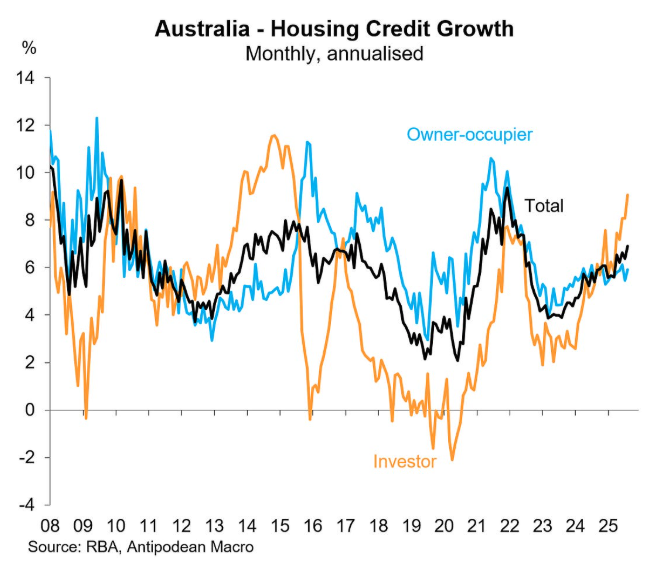
Google searches for “investment property” likewise surged to their highest level in at least two decades:
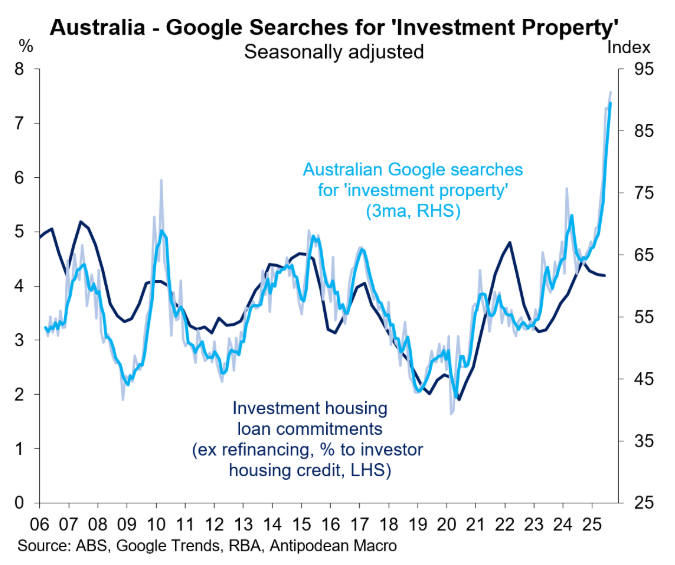
This week, PropTrack released its investor report, which confirmed that investor demand is surging, comprising their highest share of lending since 2017.
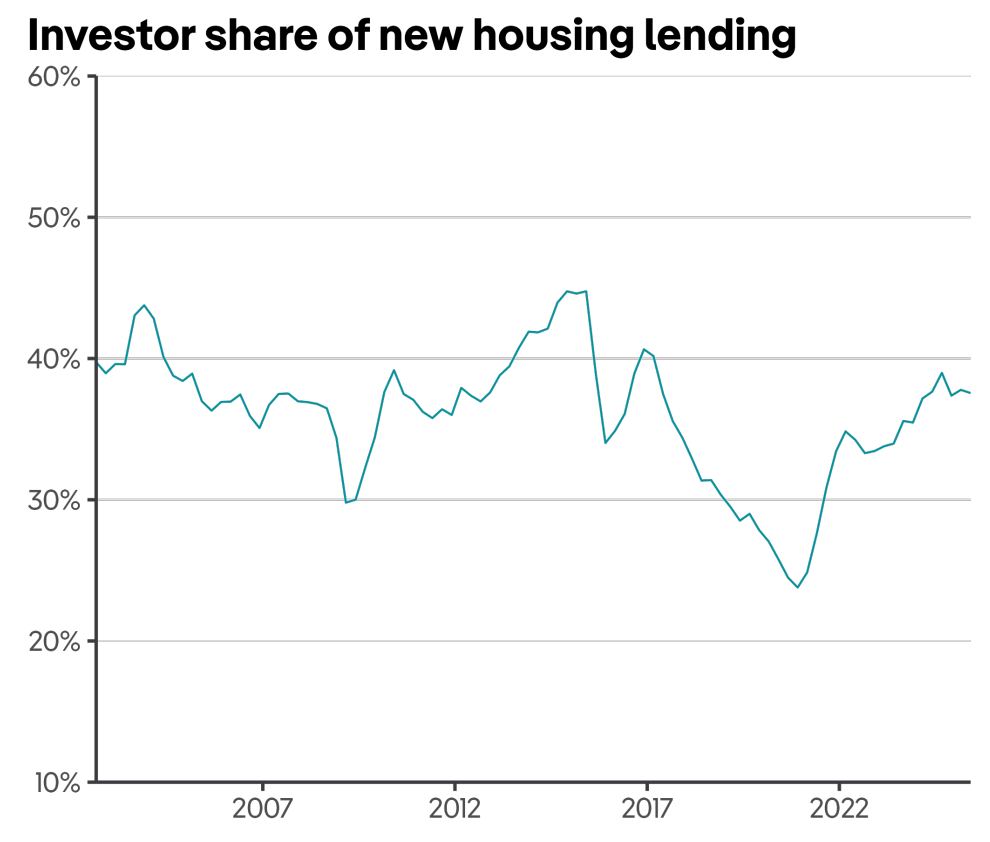
“This high level of activity is likely driven by falling mortgage rates and tight rental market conditions”, PropTrack notes.
“Underscoring how tight rental market conditions are, rental vacancy rates are very low by historical standards. There is strong competition for rentals, rapid growth in rents and increased gross rental yields”.
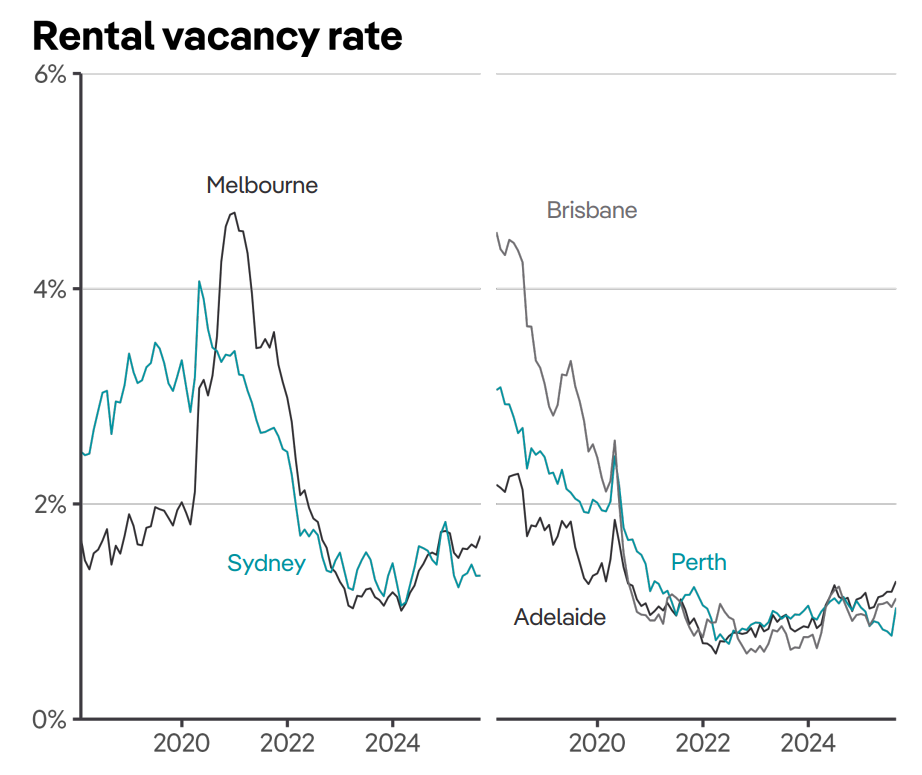
“Rental availability remains extremely challenging, with rental vacancy rates around the country sitting at very low levels by historical standards. That limited availability is driving strong competition among prospective tenants, leading to higher rents and increased demand as rentals lease quicker than was typical prepandemic”.
“That combination of rental market conditions is likely encouraging some investors to buy in to the market”.
The growing demand from investors has arrived at the same time as first-home buyer demand is also accelerating, courtesy of Labor’s 5% deposit scheme.
Lateral Economics forecasts that in areas targeted by first-home buyers, which are defined as those below the scheme’s generous price limits, property prices could climb by 5.3% to 9.9% purely as a result of the policy.
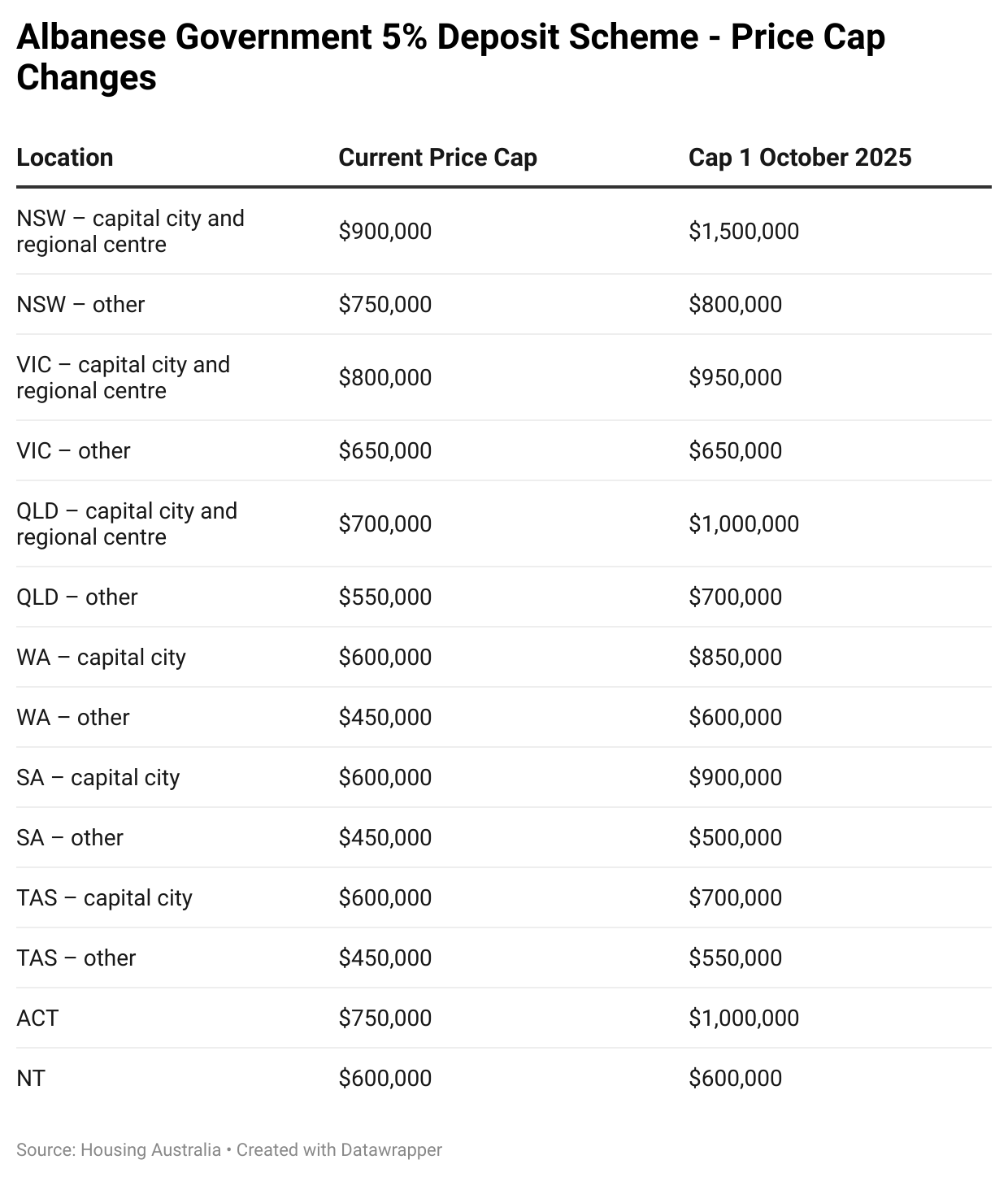
Canstar’s director of data insights, Sally Tindall, warned that the 5% deposit scheme will “add demand into a red-hot property market”, meaning “prices are likely to go up even further”.
Mortgage brokers and real estate agents have already recorded large increses in interest from first-home buyers seeking to take advantage of the scheme.
The rising interest from both investors and first-home buyers helps to explain why Westpac’s house price expectations survey hit a 15-year high in September:
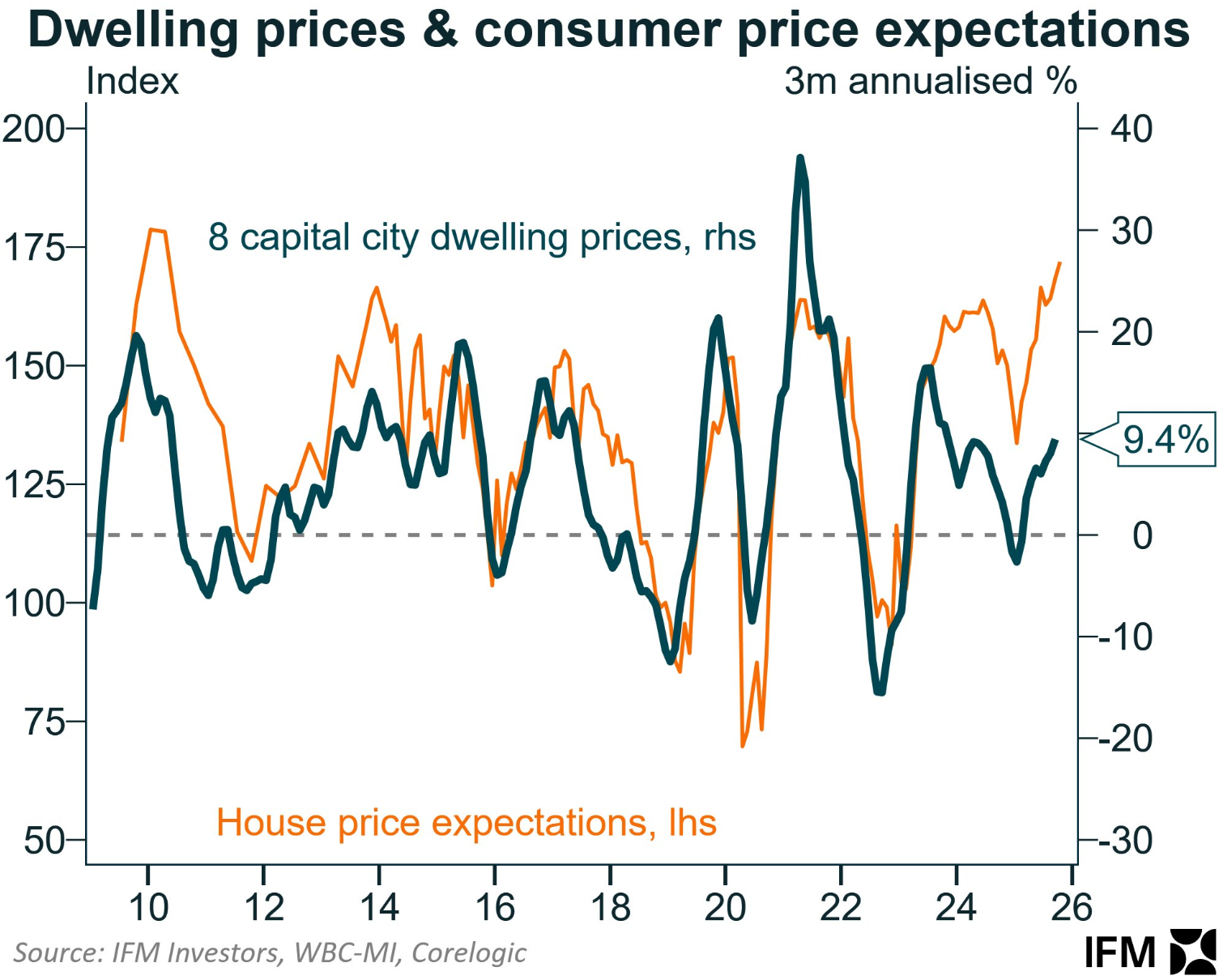
The upswing is likely the strongest in more affordable segments, since they are typically targeted by first-home buyers and investors alike.
Indeed, Lachlan Vidler, a director at property investment company Atlas Property Group, told The Australian that a fear of missing out has gripped investors as they compete against first-home buyers, resulting in a “market frenzy”.
“A lot of people are coming to us and talking about ‘have we missed the boat, have we missed the market, we want to get in yesterday because it’s just going to send prices through the roof’”, he said.
“There’s a huge sense of FOMO that’s starting to be developed around the marketplace from investors. At the end of the day investors are obviously highly motivated because it’s all about the financial returns and getting the best bang for buck that they can”.
“There’s a lot of nervousness around people who have that little bit of concern that now they might be 5% or 10% behind the pace”.
“Depending on what you’re buying and where you’re buying, you could very easily be paying tens of thousands of dollars more, just because of the sheer nature of competition”, he said.
Meanwhile, Cotality reported that the total number of homes listed for sale across the combined capital cities is tracking 15.9% below the same time last year.
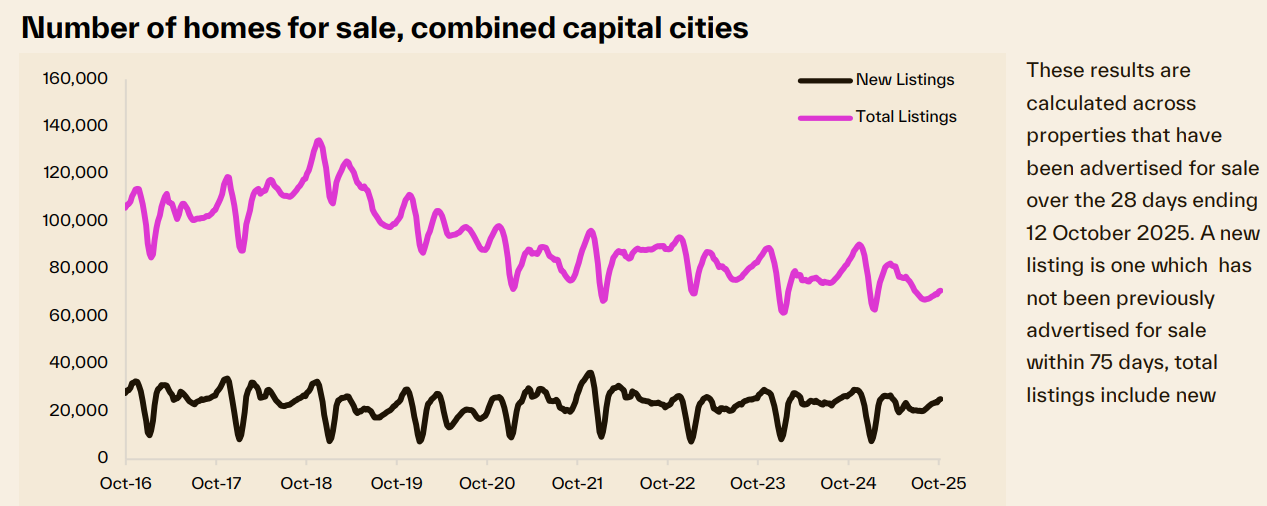
Source: Cotality
In summary, Australia’s housing market is facing increasing demand from all sides, while supply remains tight. These forces will inevitably see prices rising further from their already lofty heights, led by the more affordable end of the market.
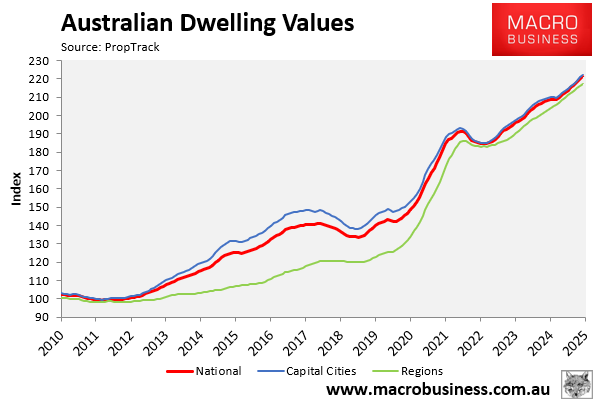
Rising prices are a dire threat to the affordability of housing in Australia, a country already ranked among the most expensive globally.

